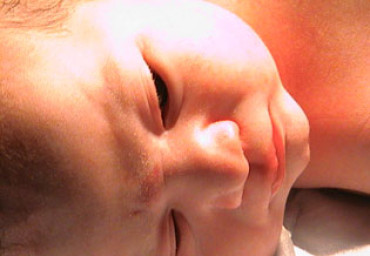Were Your Complications During Delivery Unavoidable or Negligent?

After much excitement and anticipation, the day of your child’s birth arrives. It should be the happiest day of your life. Unfortunately, it doesn’t always turn out that way. When something goes wrong during delivery, it can be devastating for parents and baby, and often is only the beginning of a medical and emotional nightmare that can last a lifetime.
It is estimated that 7 out of 1000 births result in some sort of birth injury. Birth injuries range in severity, from minor bruising to nerve or brain damage to death. While some injuries are unavoidable, and are not the fault of doctors or other medical staff, some are completely preventable and occur due to negligence.
Birth injuries due to negligence can occur long before an expectant mother is due to deliver. One such instance is miscarriage. While many miscarriages happen naturally in the first trimester, some women experience multiple losses later in their pregnancies. This may be due to a medical condition known as an incompetent cervix. This condition is easily diagnosed, and often easily treated, to prevent second trimester miscarriages and premature delivery. However, if a doctor does not perform the proper tests, or misdiagnoses the condition, and it results in miscarriage or premature delivery, it may be considered negligence.
Another situation that opens the door for birth injuries is when a mother is required to have a caesarean section. There are many instances when a C-section is chosen over a vaginal birth, and it is the right decision for both mother and baby. However, it is important that expectant mothers understand that even a pre-planned C-section comes with more risks than a natural birth. Any major surgery, which a C-section is, risks excessive bleeding, infections, permanent damage or scarring, as well as risk to nearby organs. A C-section can also decrease the ability to have a natural birth in the future as each time the uterine muscles are cut, they are weakened. After multiple C-sections, the mother risks excessive bleeding, having to have a hysterectomy, or issues with the placenta not separating from the uterus which could cause death. If the doctor makes the decision to perform a C-section that isn’t warranted, or makes other mistakes during the surgery that result in a birth injury, it may be considered negligence.
More than 50% of expectant mothers have an epidural to relieve the pain of delivery. An epidural is an anesthetic that is injected into the membrane that surrounds the spinal cord, stopping pain signals from reaching the brain. This form of anesthesia has become quite routine, but always has risks, even when done correctly. However, if the epidural is administered incorrectly, those risks increase dramatically. If the numbing agent is injected into the wrong area, it can cause excruciating headaches in the mother that linger after the delivery. An epidural, in which the anesthetic travels up the body instead of down to the abdomen and pelvis, can cause cardiac arrest and even death. If you or someone you love has been injured during an epidural, it may be due to negligence.
Birth injuries also occur in newborn babies. They can easily be injured if forceps or a vacuum have to be used during the delivery, which can cause bruising and broken bones. In some cases the injury is noticeable right away, like in the case of babies who are born blue and fail to become a healthy pink after taking their first breaths. This is a sign that they are lacking oxygen or that the heart rate has dropped too low during the labor and delivery. While this is a complication that can happen even when no mistakes are made, it may be a sign that there was some sort of negligence, and could possibly lead to chronic medical issues later.
Newborn babies are probably the most watched humans on the planet. As a new parent you will likely notice if there is anything out of the ordinary with your baby right away. If you notice that your baby isn’t able to move one of his arms in the same way that he move the other one, or if he cries when one arm is moved, your child may have what is called, “shoulder dystocia”. This complication happens during delivery when one of a baby’s shoulders gets stuck in the birth canal. This could happen due to negligence during the delivery. Complications with circumcision can also be cause for concern. Most healthy baby boys are circumcised within 10 days of being born. If a circumcision is not done correctly, it can result in infection, deformity, and sexual dysfunction later in life. If you notice symptoms of infection, difficulty urinating, pain or malformation of the penis, negligence may have occurred during the circumcision.
The birth of a new baby should be a happy time, enjoyed by family and friends. Complications during labor and delivery may preclude that from happening. If you or a loved one has observed or experienced any of the complications above, contact us to see if you have suffered a birth injury due to negligence.
Disclaimer: Ross Feller Casey, LLP provides legal advice only after an attorney-client relationship is formed. Our website is an introduction to the firm and does not create a relationship between our attorneys and clients. An attorney-client relationship is formed only after a written agreement is signed by the client and the firm. Because every case is unique, the description of awards and summary of cases successfully handled are not intended to imply or guarantee that same success in other cases. Ross Feller Casey, LLP represents catastrophically injured persons and their families in injury and wrongful death cases, providing legal representation in Pennsylvania and New Jersey.





